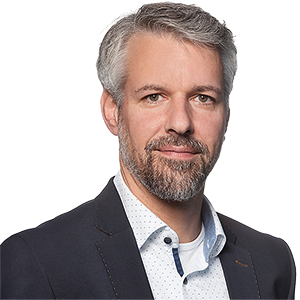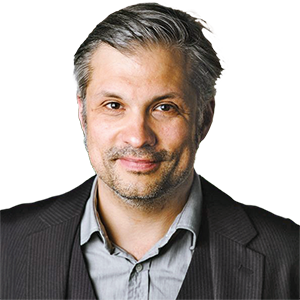Bitte beachten Sie, dass die Konferenzsprache Englisch ist. Es gibt die Möglichkeit, die Inhalte über unseren Dolmetscher-Service per Kopfhörer auf Deutsch zu verfolgen.
Programm
Tag 1
Program Preview – Subject to change.
March 17, 2025
Day 1 | 10:00 – 18:00 + Get-together
Eröffnung der Konferenz
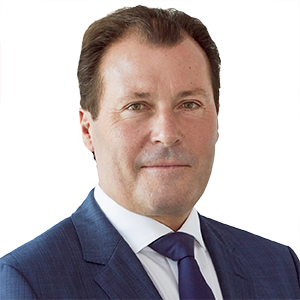

Tina Teucher inspires with presentations, lectures and panel discussions about corporate success through sustainability, Corporate Social Responsibility (CSR) and Sustainable Entrepreneurship. The communications specialist is a graduate of the MBA Sustainability Management of the University of Lüneburg. Ms. Teucher was managing editor of the decision-makers’-magazine “forum CSR” from 2009 to 2014. She publishes on CSR communications, energy transition and green innovations.
Eröffnungs-Keynote
Wasserkrise in der Klimakrise – und Wege aus der Krise
Das globale Wassersystem ist mit vielfältigen Krisen konfrontiert, die sich durch den fortschreitenden Klimawandel zunehmend verschärfen. Um den Druck auf die planetarische Süßwassergrenze zu verringern, sind große Anstrengungen erforderlich, um Wassereinsparungspotenziale in allen Sektoren zu erschließen, einschließlich der Umgestaltung der Agrar- und Ernährungssysteme und der städtischen Umwelt.
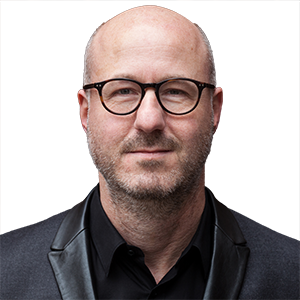
Prof. Dr. Dieter Gerten, geographer and freshwater ecologist, is Head of the research group “Terrestrial Safe Operating Space” in the Department of Earth System Analysis at the Potsdam Institute for Climate Impact Research (PIK). He is also Professor for Global Change Climatology & Hydrology at the Humboldt University of Berlin. Furthermore he is co-speaker of the Leibniz Association’s Research Network “Earth & Societies”. His publications – including around 200 papers, book chapters and books – span a range of topics such as climate change impacts on water resources, water-vegetation interactions, water and religion, as well as food security within planetary environmental boundaries.
Insights
Die Ökonomie des Wassers: Die Gestaltung einer nachhaltigen Zukunft mit einem neuen Paradigma für Wasser
- Wie können wir den wirtschaftlichen Wert von Wasser neu definieren, um seine wahre Knappheit und Bedeutung widerzuspiegeln?
- Können neue Wirtschaftsmodelle dazu beitragen, weltweit einen gerechteren Zugang zu den Wasserressourcen zu schaffen?
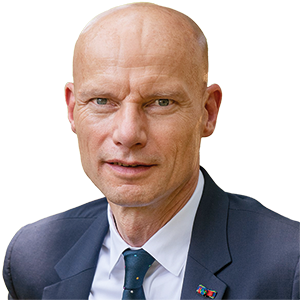
Henk Ovink is the Executive Director and founding Commissioner for the Global Commission on the Economics of Water. He was the first global water ambassador, appointed in 2015 by the Dutch Cabinet as Special Envoy for International Water Affairs. As Ambassador to the UN on Water he led the second UN Water Conference in 2023, the first since 1977.
Henk served on President Obama’s Hurricane Sandy Rebuilding Task Force where he led the long-term innovation, resilience, and rebuilding efforts and developed and led the groundbreaking ‘Rebuild by Design’ competition. Before joining the Task Force Ovink was both Acting Director General of Spatial Planning and Water Affairs and Director National Spatial Planning for the Netherlands after multiple roles in the private sector and academia.
Henk holds an honorary doctorate at Delft University and is associate professor at the University of Groningen in Climate Adaptation and Water Management. In 2023 Henk Ovink was the 10th recipient of the Foreign Affairs Decoration of Honor in Gold for his global leadership on water diplomacy.“
Panel Diskussion
Von der globalen Vision zum Handeln: Die Gestaltung einer wassersicheren Welt
- Welche Rolle spielen internationale Rahmenkonzepte wie die UN-SDGs bei der Gestaltung der globalen Wasserpolitik? Welche zusätzlichen Maßnahmen können und sollten Regierungen und der private Sektor ergreifen, um den Fortschritt zu beschleunigen?
- Was sind Beispiele für bewährte Verfahren, wo können diese Verpflichtungen in die Tat umgesetzt werden?
- Wie ist Wasser mit Energie, Nahrung und Ökosystemen verknüpft und wie kann es die Ergebnisse aller anderen SDGs positiv beeinflussen?

Dr. Hamed Beheshti is the CEO and Co-founder of Boreal Light GmbH, a Berlin-based company revolutionizing water access in remote and underserved regions. A visionary leader in sustainable water solutions, he has developed an innovative solar-powered desalination system that delivers affordable and safe drinking water to communities worldwide.
Through Boreal Light GmbH and its social enterprise The Crystal Ltd, Dr. Beheshti is driving impactful initiatives to expand access to clean water across East Africa and Latin America. He is also the founder of the OffGrid Water Alliance, a global platform representing the sector and advocating for sustainable water solutions on the international stage.
With extensive expertise in renewable energy and water technologies, Dr. Beheshti is a sought-after speaker, inspiring audiences worldwide and leading critical discussions on addressing water scarcity for a more sustainable and equitable future.

Henk Ovink is the Executive Director and founding Commissioner for the Global Commission on the Economics of Water. He was the first global water ambassador, appointed in 2015 by the Dutch Cabinet as Special Envoy for International Water Affairs. As Ambassador to the UN on Water he led the second UN Water Conference in 2023, the first since 1977.
Henk served on President Obama’s Hurricane Sandy Rebuilding Task Force where he led the long-term innovation, resilience, and rebuilding efforts and developed and led the groundbreaking ‘Rebuild by Design’ competition. Before joining the Task Force Ovink was both Acting Director General of Spatial Planning and Water Affairs and Director National Spatial Planning for the Netherlands after multiple roles in the private sector and academia.
Henk holds an honorary doctorate at Delft University and is associate professor at the University of Groningen in Climate Adaptation and Water Management. In 2023 Henk Ovink was the 10th recipient of the Foreign Affairs Decoration of Honor in Gold for his global leadership on water diplomacy.“

Barbara Gerhager is an engineer specializing in technical environmental protection with a focus on water, sanitation and solid waste management. She has extensive implementation experience in Africa and the MENA region in sector reform, regulation, urban supply, and sanitation, as well as advisory experience in Asia and Eastern Europe. She has 20 years of experience in strategy and capacity development, cooperation, and change management. She is currently heading the competence center/think tank for water, wastewater, and solid waste management at GIZ headquarters. Additionally, she has been a member of the executive board of the FiW Research Institute for Water Management and Climate Future at RWTH Aachen since 2021.
Panel Diskussion
Erreichung des Ziels Nr. 6 für nachhaltige Entwicklung: Fortschritte, Fallstricke und der Weg nach vorn
- Wie können Regierungen, Unternehmen, Nichtregierungsorganisationen und Gemeinden ihre Bemühungen zur Bewältigung der globalen Herausforderungen im Bereich der Wasserversorgung und Abwasserentsorgung bündeln?
- Wie können Finanzierungsmechanismen und insbesondere die Beteiligung der Industrie den Fortschritt bei der Verwirklichung von SDG 6 besser unterstützen?
- Wie beeinflusst die Art und Weise, wie wir über Sanitärversorgung und Hygiene kommunizieren, den Erfolg von WASH-Programmen?
- Welche wichtigen Fähigkeiten und Ressourcen werden benötigt, um die Widerstandsfähigkeit und Kapazität von Institutionen zu stärken?

Director, Water, Sanitation & Hygiene
Doulaye Kone leads the foundation’s efforts to ensure access to safe sanitation for the 3.5 billion people who currently live without it. He and his team work to disrupt the decades-long status quo in the sanitation sector by supporting the development and commercialization of transformative technologies, including the “reinvented toilet,” and create a clear, cost-effective pathway to deliver these technologies at scale to people in in low-income settings who need them the most. Doulaye has more than 20 years of experience in the sanitation sector and spent 13 years leading technology innovation efforts on the Water, Sanitation & Hygiene team.
Before joining the foundation in 2011, Doulaye served as program coordinator of Water Operators’ Partnerships (WOPs) in sub-Saharan Africa for the African Water and Sanitation Association. WOPs enable water utilities and sanitation service providers to help one another build capacity and improve their performance.
Doulaye is a sanitation engineer with a Ph.D. from the Swiss Federal Institute of Technology Lausanne (EPFL) and a Certificate of Specialization in Strategy from Harvard Business School.

Thilo Panzerbieter is the Founder and Executive Director of the German Toilet Organization (GTO), a non-profit organization dedicated to improving sanitation and hygiene worldwide in order to promote health, dignity, and education. Thilo is also the Chair of the German WASH Network, uniting 30 German NGOs in knowledge exchange, quality assurance and advocacy in the field of WASH.
As a civil engineer, specialized in the field of water, sanitation, and hygiene, Thilo has extensive experience in international development cooperation and humanitarian aid. Under his leadership, the GTO has carried out awareness raising and advocacy campaigns (e.g. “Sanitation is Dignity” – official campaign of the International Year of Sanitation in partnership with UN Water), has created knowledge management and capacity development tools (e.g. “Compendium of Sanitation Technologies in Emergencies” and “Sanihub”) and helped develop a scalable approach for sanitation and hygiene improvements at schools (“Toilets Making the Grade Competitions” in Germany and worldwide).
Thilo is also recognized for his work in networks and partnerships. To name a few: He was involved in the founding of the Sustainable Sanitation Alliance (SuSanA), spent 6 years representing Northern CSOs on the Steering Committee of SWA, and is helping to co-lead the Triple Nexus in WASH (Humanitarian-Development-Peace) Initiative of the WASH Roadmap.“

Seit 09/2018 Geschäftsführender Vorstand, Viva con Agua de Sankt Pauli e.V.
- Strategieentwicklung und Organisationsentwicklung
- Personalverantwortung für 30 -köpfiges Team
- Finanzplanung & Controlling; Kennzahleneinführung
- Netzwerkausbau und Fundraising (Partnerakquise)
- Keynote Speaking, Repräsentanz, PR Vertretung
- Wirkungsfokussierung (Wasserprojekte)
- Stakeholdereinbezug von Aufsichtsrat, Gründern, Ehrenamtlichen und Multiplikator:innen
- Gesellschaftervertretung in drei Social Business
- Teamentwicklung, u.a. Einführung von New Work Konzepten und kontinuierliche Anpassung
- Wertstromanalysen und Wertstromentwicklung
- Professionalisierung der Organisation (OKR System, Digitalisierung, Prozessoptimierung, Performance)
01/2018 – 07/2018 Consultant
Bröker + Partner Unternehmensberatung GmbH
- Analyse der Change Fähigkeit von Organisationen und Konzeptentwicklung für das Change Management
- Entwicklung von Trainings und Workshops
12/2014 – 11/2017 Einrichtungsleitung
PERSPEKTIVE für Jugend und Familie GmbH
Fachaufsicht: Konzeptarbeit, Planung der Leistungen und Beratung der Fachkräfte“
Personalverantwortung für 22 Mitarbeiter:innen
Weiterentwicklung der Unternehmensstrategie im Gesamten und der Abteilungen im Einzelnen
Finanzaufsicht: Budgetplanung und –kontrolle
Personalführung und –entwicklung inkl. regelmäßiger Mitarbeiter:innengespräche
Netzwerkarbeit
Kontaktpflege zu Ämtern und Ministerien
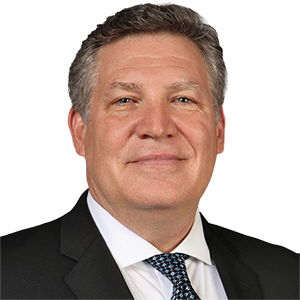
As CEO of IAPMO and the International Water, Sanitation and Hygiene Foundation (IWSH), Dave Viola leads a global team dedicated to advancing safe, sustainable, and resilient water and sanitation solutions. With over 30 years in the plumbing, mechanical, and sustainability sectors, Mr. Viola, who is also the current chair of the World Plumbing Council, has pioneered the development of codes, standards, and certification programs that protect public health worldwide. Under his leadership, IAPMO drives progress toward Sustainable Development Goal 6 through research and workforce development initiatives, engaging government, industry, and communities to ensure technically sound and publicly beneficial solutions for a safer built environment.
Impuls: Industry meets Politics
Wasser im Zentrum der globalen Politik: Die Rolle der Gesetzgebung und des Rechtsrahmens
- Making water a priority within the political agenda
- Den Weg zu einem wasserresistenten Europa ebnen
- Wie können politische Entscheidungsträger die Beteiligung des Privatsektors an Initiativen zur Wasserbewirtschaftung fördern und vice versa?
- Welche Lehren lassen sich aus der Umsetzung wassereffizienter Lösungen ziehen und welche Rolle kann die Wohnungs- und Sanitärindustrie bei der Verwirklichung von Nachhaltigkeitszielen spielen?

MITTAGSPAUSE
Insights
The Nexus between Water Resilience and Antimicrobial Resistance

Tom Reynolds is Chief Executive of the Bathroom Manufacturers Association (BMA), a trade body representing companies who supply the majority of the UK’s bathroom fixtures and fittings. The association focuses heavily on product compliance and all aspects of sustainability. In addition to leading the BMA Tom is Chair of the UK Trade Association Forum’s Public Affairs Group (PUBCOM), a board member of the Construction Products Association, and is a Vice-President of the European Taps and Valves Association (CEIR).
Before joining the BMA in 2019, Tom was Commercial & Public Affairs Director at the British Ceramic Confederation, where he had a particular interest in international trade policy. Prior to entering the world of trade associations, Tom worked as a journalist and producer in trade media and started his career as a parliamentary aide. He is an alumnus of Keele University, holding an honours degree in Law and Politics and an MRes in Environmental Politics.
Best Practice Panel
Ein Test, ein Standard: Auf dem Weg zu einer europäischen Harmonisierung von Materialien im Kontakt mit Trinkwasser
- Ziel: Den europäischen Binnenmarkt nachhaltiger und stärker machen
- Qualitätsstandards anheben für Kunden und Verbraucher
- Länderübergreifender, kooperativer Ansatz

Ilari Aho is Vice President for Sustainability & Regulatory Affairs for GF Building Flow Solutions (formerly known as Uponor). He has a degree in mechanical engineering from Helsinki University of Technology, and over 35 years of experience in various management, business development, technology and R&D roles related to the built environment, construction and building services industries. Ilari currently serves as Board Member and 1st Vice President of Water Europe (WE), Executive Council Member of the European Heating Industry Association (EHI), Board Member and Treasurer of the European Built Environment, Construction and Energy Efficient Buildings Technology Platform (ECTP), Vice President of ENCORD (European Network of Construction Companies for R&D), Member of the Industry Advisory Forum of CEN-CENELEC and as Member of the Corporate Advisory Board of World Green Building Council (WorldGBC).“

Started working at WILO’s materials department after studies of chemical engineering. At the beginning mainly elastomers were the main topic. More and more regulatory topics took over, such as drinking water and substance regulations. Today besides substance management, the work in associations fills the main time of the working day. This includes the leading of different working groups in different associations, such as for example the EDW products workinggroup.

Bert Leemans is a policy officer at DG Environment of the European Commission. He works in the unit ‘Marine environment and clean water services’ and coordinates the implementation of the recast Drinking Water Directive. He has a background in chemical engineering and economics and has worked in water supply sector for more than 15 years in the past. He coordinated the implementation of the so-called ‚Article 11‘ of the recast Drinking Water Directive on establishing European hygiene requirements for materials in contact with drinking water resulting in European secondary legislation that applies from end of 2026.

Education
1989 – 1993 Fachhochschule Esslingen Germany
Diploma Engineer Sanitary and Heating Technology
Professional Experience
2006 – 2014 Senior Technical Manager at DVGW (German Technical and Scientific Association for Gas and Water) Head office for products in contact with drinking water
2014 – 2018 Managing Director Water of the figawa (Association of Companies for Gas and Water Technologies)
2018 – present General Manager of the figawa (Association of Companies for Gas and Water Technologies)
2013 – present Convenor of CEN TC 164 WG 2 “Drinking Water Installations”
2006 – present Member of several national DIN Mirror Committees
2017 – present Convenor of the German mirror committee of TC 164 WG 2
“Drinking Water Installation”
2016 – present Chairman of the European Drinking Water Initiative (EDW)
2021 – present President of Aqua Europa AISBL
2019 – present Member of the board of directors DVGW CERT GmbH“
Impuls
PPP im Wasser- und Abwasserbereich: Wo und wie werden sie eingesetzt?
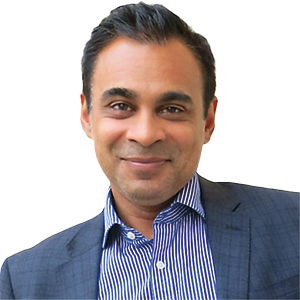
Neil is the Director of AquaFed, the Global Federation of Private Water Operators and Partners. He as previously Secretary General of Bureau – the European Association of water and wastewater operators.
Before working in water he was Head of Government Relations at the UK Financial Services regulator.
Investment Panel
Wasser finanzieren: Der Schlüssel zur Wassersicherheit?
- Was sind die wichtigsten Herausforderungen und Chancen im Zusammenhang mit der Finanzierung von Wasser?
- Welches sind die wichtigsten Hebel, um das derzeitige Investitionsniveau zu erhöhen?
- Welche Rolle spielen öffentlich-private Partnerschaften bei Wasser- und Abwasserprojekten und was sind die potenziellen Vorteile und Risiken?
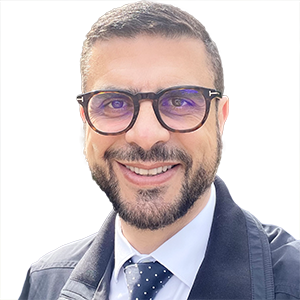
Walid Oueslati is currently the Head of Climate, Biodiversity and Water Division at the OECD. He was previously a full professor of Environmental Economics at Agrocampus, University of Angers (France). He has extensive research and research management experience across a number of fields, including climate and environmental economics, ranging from pure academic to policy supporting research. He holds a PhD degree from the University of Paris Nanterre (France) and published several scientific articles in refereed journals and policy reports.

Kawien Ziedses des Plantes joined Oikocredit in 2010 as Global Communications Manager and became Deputy Director Social Performance & Capacity Building in 2015 before specialising as Global Social Performance Specialist in 2019 and becoming Sustainable Impact Manager in 2022 and Interim Director of Strategy & Sustainable Impact in June 2024. In 2021 Kawien launched the successful Oikocredit End-Client Survey Programme, focusing on data-driven actions, outcomes and change.
Prior to joining Oikocredit, Kawien worked at ING Group and Price Waterhouse Coopers. Raised and educated in various countries in Africa, Europe and North America, she brings a wide perspective to social performance management and impact investing. She is a certified integrated sustainability risk adviser and has master’s degrees in journalism from Syracuse University, USA, and in fiscal economics from the University of Amsterdam.
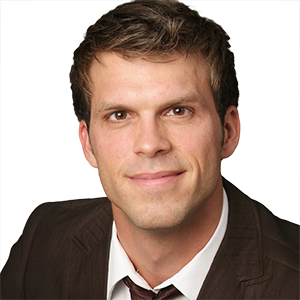
Daniel Nordmann has been working on water and finance related issues over the last 13 years in various roles at KfW Development Bank and GIZ. He gathered extensive experience on water sector reform in Eastern Africa and other regions. Over the last years he worked on the preparation of a new programme on behalf of BMZsupporting water utilities in the global south to reach creditworthiness and mobilize investment.
Sprecher in Absprache
Impuls

Carlos Velazquez, Sustainability & Institutional Relations Director, ROCA GROUP
He was born in 1969 in Barcelona, Spain. After getting his degree in Economics and Business Administration at the UAB, he began working at the international audit group, Price Waterhouse Coopers (PWC). After two years as an auditor of PWC, he joined the team of the Internal Audit Department of the Roca Group.
Carlos Velazquez has worked for Roca Group for thirty years and during all this time he has held different positions in several countries: Internal Auditor in the headquarters (Barcelona), Controller in Roca Maroc (Morocco), Administration Director of Roca Torneiras (Portugal) and CFO in the subsidiary of the Roca Group in the USA. Later, after three years in the USA, he came back to Barcelona to lead the Corporate Controlling Department until he was transferred to Bulgaria in 2005 as Managing Director of Roca Bulgaria, from where he returned to the headquarters in Barcelona in 2008, to lead the creation and further development of the Corporate Marketing Department of the Group until the end of 2019, when he took the position of Director of Sustainability and Institutional Relations of the Roca Group.
In addition to his responsibilities at Roca, Carlos Velázquez is a member of the Board of Trustees of the We Are Water Foundation, Trustee of the University School of Design and Engineering of Barcelona (ELISAVA), President of the Unified Water Label Association (UWLA), Vice-president of both the European Association for the Taps and Valves Industry (CEIR) and the Spanish National Association of Taps and Valves Manufacturers (Agrival) and Chairman of the Marketing Working Group of the European Sanitaryware Producers Federation (FECS).
Impuls
Is water the next carbon?
The role of water for the industrial sustainability transformation

COFFEE BREAK

Since January 2007, Dr Dinesh Mehta has been working as a Professor Emeritus at CEPT University. Dr. Mehta returned to CEPT University after nearly a decade of work with UN-HABITAT in Asia and at its headquarters in Nairobi, Kenya. At UN-HABITAT, Nairobi, he was head of the Urban Development Unit and Coordinator of a major global programme, the Urban Management Programme. Prior to joining the United Nations, during 1992-97, Dr. Mehta was the Director of the National Institute of Urban Affairs, New Delhi, India, an autonomous institute under the Ministry of Urban Development, Government of India. During 1985-92, he was the Director of the School of Planning at CEPT University, Ahmedabad, India. In 2013, Dr Mehta was awarded the International Water Association’s Development Solutions Award in recognition of his contribution to research and practice in Water. In 2017, I became a fellow of IWA and Chair of their specialist group on water and sanitation in developing countries. Dr. Mehta has a PhD from the University of Pennsylvania, a Master’s in City and Regional Planning from Harvard University, and a Bachelor of Technology in Civil Engineering from IIT, Madras, India.
Panel Diskussion
Unlocking the Sanitation Market: How to Create an Ecosystem between Market Opportunities and Social Impact Initiatives
- How can businesses and institutions bring innovation and scalable solutions to underserved markets?
- What regulatory, financial, and infrastructural barriers prevent businesses from entering the sanitation market? How do the barriers differ between developed and developing markets?
- How can governments, international organizations, and NGOs work together to create a more conducive environment for private sector investment?
- What role can corporate social responsibility (CSR) and social business models play in creating long-term, sustainable sanitation solutions?
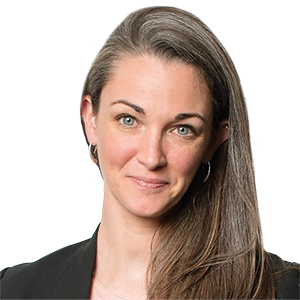
Erin McCusker is Senior Vice President and Leader, SATO and LIXIL Public Partners at LIXIL. Erin leads businesses and initiatives across LIXIL to deliver on LIXIL’s purpose of making better homes a reality for everyone, everywhere. SATO is the award-winning flagship social business developing innovative sanitation and hygiene solutions that create a better life, every day, for communities around the world. Erin is orienting the SATO business for its next phase of growth in product innovation, business models, and geographic reach.
Within the broader LIXIL Group, she is also responsible for the new LIXIL Public Partners and Hydrific ventures. These new initiatives in LIXIL recognize the need for innovation and new partnerships with consumers, and with the public sector, to solve the water, sanitation, and hygiene challenges to build resiliency and adapt to our changing world. Across all her work, Erin brings not only her passion for the role of the private sector in helping to solve global challenges, but also her rigor and commitment to creating value for customers and being an active contributor in the sector.
Erin is also Chair of the Toilet Board Coalition (TBC), a unique business-led partnership with the ambition to accelerate the Sanitation Economy. A former strategy consultant and senior project leader, Mrs. McCusker brings in-depth experience across global development and the role of the private sector in accelerating progress on global challenges. Previously having worked with social enterprises, philanthropists, and other bilateral and multilateral organizations, she is skilled in relationship management, strategy development and planning, engagement of complex stakeholder groups, organizational effectiveness and implementation, analysis, and business case development. Erin holds a BS, Bioengineering from FW Olin College of Engineering, an MBA from Duke University, and a certificate in Social Sector Leadership.

Engr. Bonifacio Magtibay is a graduate of Bachelor of Science in Civil/ Environmental & Sanitary Engineering from the Mapua Institute of Technology (now Mapua University) with PhD in Environmental Studies, MSc in Environmental Management, and International Diploma in Sanitary Engineering (IHE, Netherlands). He is recognized as an ASEAN Engineer, former President and currently the Chancellor of College of Fellows of the Philippine Society of Sanitary Engineers.
He has more than 35 years of work experience in the field of water, sanitation, and environmental health in various international, government, non-government, academe and United Nations agencies, such as Technical Officer in WHO-Geneva, Program Officer in UNICEF-Manila, Freelance Consultant, Sanitary Engineer, and a writer of environmental health articles.
He received some key awards such as the Outstanding Sanitary Engineer of 2018 given by the Professional Regulation Commission of the Philippines; Honorary Fellow Award from the ASEAN Federation of Engineering Organizations (AFEO) in 2018; Outstanding Alumnus for Sanitary Engineering from the School of Civil, Environmental and Sanitary Engineering Alumni Association, Mapua University in 2019; and the Distinction and Excellence Award in Private Specialized Practice in Sanitary Engineering given by the Philippine Federation of Professional Associations in 2021.
He is currently working as the Technical Officer for Environmental and Occupational Health at the World Health Organization – Philippine Country Office.

Since January 2007, Dr Dinesh Mehta has been working as a Professor Emeritus at CEPT University. Dr. Mehta returned to CEPT University after nearly a decade of work with UN-HABITAT in Asia and at its headquarters in Nairobi, Kenya. At UN-HABITAT, Nairobi, he was head of the Urban Development Unit and Coordinator of a major global programme, the Urban Management Programme. Prior to joining the United Nations, during 1992-97, Dr. Mehta was the Director of the National Institute of Urban Affairs, New Delhi, India, an autonomous institute under the Ministry of Urban Development, Government of India. During 1985-92, he was the Director of the School of Planning at CEPT University, Ahmedabad, India. In 2013, Dr Mehta was awarded the International Water Association’s Development Solutions Award in recognition of his contribution to research and practice in Water. In 2017, I became a fellow of IWA and Chair of their specialist group on water and sanitation in developing countries. Dr. Mehta has a PhD from the University of Pennsylvania, a Master’s in City and Regional Planning from Harvard University, and a Bachelor of Technology in Civil Engineering from IIT, Madras, India.
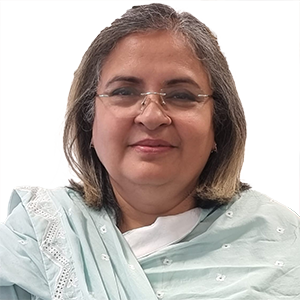
Born in 1967
Holds Master’s degree in Foreign Affairs & Trade (Monash University, Australia)
Joined the Foreign Service of Pakistan in 1993.
1995- Served at Headquarters as Section Officer
Canada and Latin America
United Nations
1996-1997- Study leave- (Monash University Australia)
1997-1998- Section Officer/ Assistant Director Economic Coordination
1998-2001- Third Secretary and Second Secretary Pakistan Embassy Jakarta, Indonesia.
2001-2002- Deputy Director South East Asia Pacific Region Deputy Director Africa
2003-2004- Deputy Director Mission Building Services Deputy Director Europe-II
2004-2007- Second Secretary and First Secretary Pakistan High Commission Ottawa, Canada
2007-2010- First Secretary and Counselor Pakistan Embassy Kiev, Ukraine
2010-2012- Director Iran, Turkey and Shanghai Cooperation Organization
2012- Director Mission Services
2012-2016- Counselor, Minister and Deputy Head of Mission Pakistan Embassy Beijing, China
2016-2019- Director General and Additional Secretary West Asia
2019-2023 High Commissioner of Pakistan to Kenya.
Accredited to Rwanda, Uganda, Burundi, Eritrea and Somalia.
Since Pakistan opened High Commissions in Rwanda and Uganda in 2021 and 2022 respectively, currently accredited to Burundi, Eritrea and Somalia
Permanent representative to UNEP and UN-Habitat
2023 Ambassador of Pakistan to the Federal Republic of Germany.
Divorced with two daughters
Keynote
Heilige Gewässer, nachhaltige Zukünfte: Die Rolle des indigenen Wissens bei der Gewährleistung der globalen Wassersicherheit in einem sich verändernden Klima

Yolanda López-Maldonado is an Indigenous earth systems scientist working on various aspects of nature conservation. She has a strong background in promoting and defending the diversity of ideas, knowledge, values, and forms of self-expression of Indigenous Peoples. Her career has spanned diverse topics in both the natural and social sciences, while her focus has mainly been on earth observations and the inclusion of Indigenous knowledge in global environmental policy. She has worked and collaborated with academic and non-academic organizations in multilateral settings at different UN levels, including UNESCO, IPBES, and CBD, to mention a few, fostering discussions on how science (Western and Indigenous) can build trust between nations and support policies. Recently she has been appointed as Lead Author of the Indigenous Knowledge and Local Knowledge for the Global Environment Outlook Report 7 (GEO7), Early Warning and Assessment Division, UNEP. A Young Scholar at the Beijer Institute of Ecological Economics of the Royal Swedish Academy of Sciences and a Junior Fellow at the International Institute for Applied Systems Analysis (IIASA), Dr. López-Maldonado holds a PhD in Human Geography from Ludwig-Maximilians-Universität München (Germany).
Closing Keynote

Ernst Bromeis knows all the tricks of the trade. He has been an expedition swimmer and water ambassador for years. His water journey has taken him 1200km through the entire Rhine across Europe to the North Sea. His swimming adventures began in the springs of Graubünden and took him from Lake Victoria in Africa to the largest freshwater sea in the world, the mystical Lake Baikal in Siberia, where he immersed himself in unknown water worlds. Experience the existential resource of water from a unique perspective, from the water! Bromeis has been awarded the prestigious „Prix Eco“ for his achievements. He has appeared as a speaker at the World Water Forum in Dakar/Senegal and at the Word Economic Forum in Davos. Ernst Bromeis embodies an independent, courageous and sustainable vision for the protection of water. His unique perspective and experience as a water philosopher and his pioneering spirit make him an ally of water, raising awareness, inspiring people and building communities. His latest project: building a world water library on the Rhine.
Wrap-Up des Konferenztages

Tina Teucher inspires with presentations, lectures and panel discussions about corporate success through sustainability, Corporate Social Responsibility (CSR) and Sustainable Entrepreneurship. The communications specialist is a graduate of the MBA Sustainability Management of the University of Lüneburg. Ms. Teucher was managing editor of the decision-makers’-magazine “forum CSR” from 2009 to 2014. She publishes on CSR communications, energy transition and green innovations.
Get-together
Tag 2
Our program on the main stage:
March 18, 2025
Day 2 | 10:00 – 16:00
Eröffnung der Konferenz
Opening Keynote
Water in a heated world
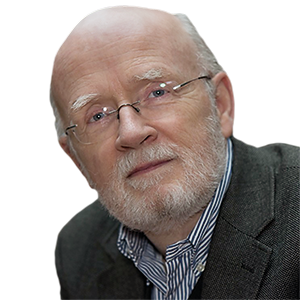
Prof. Dr. Hans-Otto Pörtner has established theory and evidence on the effects of climate warming, ocean acidification, and hypoxia on marine animals and ecosystems. In October 2015 he was elected Co-Chair of IPCC Working Group II. He made a significant contribution to the 6th IPCC Assessment Report, by integrating findings across the natural and social sciences, concerning the impacts of climate change on ecosystems and human society as well as their adaptation under climate change. He is an elected member of the European Academy of Sciences, the German Advisory Council on Global Change and a Web of Science highly cited researcher 2018 onward.“
Impuls
Smart & Resilient – Liveable Urban Quarters with Nature Based Water Solutions‘
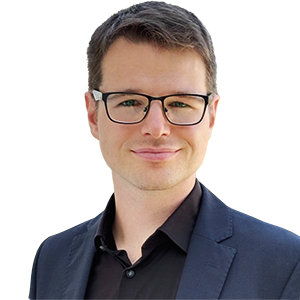
Impuls
Blue-Green Infrastructures to tackle Climate Challenges and Improve the Quality of Life, Ecology and Economy in our Cities

Impuls
Sponge Cities: A Comprehensive Framework for Urban Water Resilience
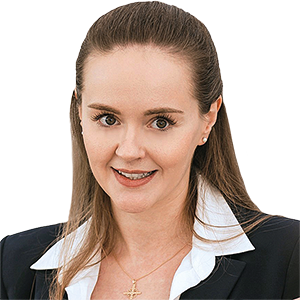
Dr.-Ing. Christina Eisenbarth completed her studies in Architecture and Urban Planning at the University of Stuttgart, specializing in lightweight construction and energy-efficient design. Since 2017, she has been a researcher at the Institute for Lightweight Structures and Conceptual Design (ILEK) at the University of Stuttgart, where she pioneered research on research on climate mitigation and adaptation technologies fostering the sustainable and resilient transformation of the built environment. From 2022 to 2024, she contributed her expertise as a visiting research fellow at the University of Sydney. In 2024, she completed her PhD on Functional Design Fundamentals of Hydroactive Skins. Since 2023, she has led a research-driven transfer and entrepreneurial initiative for HydroSKIN at the University of Stuttgart. In addition, starting in April 2025, she will assume the Professorship for Design and Technology in Integral Building Systems within the Department of Architecture at the Technical University of Darmstadt.
Insights
Rising Urbanization and its Effect on Water and Sanitation Systems in African Cities
- What are the impacts of rapid urbanization on water and sanitation systems?
- The need for context-based institutional arrangements and governance systems to address water and sanitation challenges in African cities
- The importance of actions beyond administrative city boundaries and the necessity of multi-level governance to create sustainable solutions
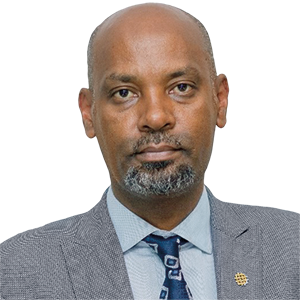
Musical Impuls
Drink Water – Give Water

Lunch Break
Impuls
Climate resilient potable water installations – rethinking potable water installations for sustainability
- What requirements must a potable water installation fulfil in order to be climate-resilient in regard to the environmental effects of tomorrow and the associated demands?
- What are the technologies to bring energy and hygiene together?
- How can the design of potable water installations decrease the demand of potable water?

As a PhD chemist, I have been working with potable water and potable water hygiene for over 20 years. Initially, I focused on disinfection, purification and water treatment. Later, I dedicated myself to targeted and problem-oriented solutions for potable water installations in buildings.
Since 2016, I have been head of the Water Competence Centre at Viega, an expert in healthy potable water in buildings and a global market leader in the installation sector. I am member of various specialist committees, e.g. REHVA (European), DIN, VDI, BTGA, figawa and main author of the
European REHVA-Guidebook No. 30 “Hygiene in potable water installations in buildings”. I am also responsible for communication/publications, application standards and application management.“
Impuls
Protection against Legionella: An important force of the building sector energy consumption
- Supply systems for hot potable water (PWH) offer a favorable ecological niche for legionella
- An energy-intensive ≥55°C temperature regime has been established to prevent legionella proliferation in PWH and consecutive human infections
- Thorough consideration of microbiological composition and ecological requirements may provide more adjusted, energy-saving concepts
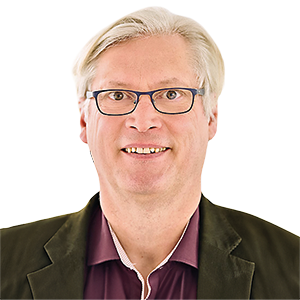
Insights
Circular Water Systems: Strategies for Urban Water Circular Economy
- The need for urban water circular systems to address water scarcity caused by urbanization and inefficient water management
- Key strategies for a water circular economy: Reduce, Reuse, Recycle, Reclaim, and Restore
- Implementation challenges: policy reforms, industry innovations, and stakeholder collaboration
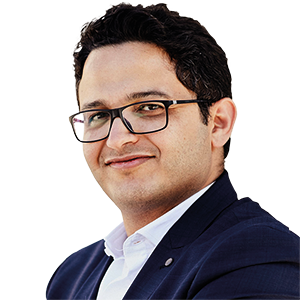
Riadh Ben Khalifa is an international expert. He has extensive experience in both the private and public sectors. He began with highway projects in France, later transitioned to consulting in the UK to assist leading developers in water and energy projects in the Middle East, and currently serves as a Senior Expert at the World Bank and an international trainer. As the general manager of Solartech-Sud in Tunisia, he develops innovative water solutions for agriculture, which will be highlighted in our Breakout Room sessions.
Panel Diskussion
Water-Smart Buildings and Circular Systems
- How can water-smart buildings equipped with systems like rainwater harvesting, greywater recycling, and circular showers contribute to sustainable urban water management?
- What role do updated building codes and regulations play in enabling the widespread adoption of circular water solutions?
- What financial incentives, such as subsidies and tax benefits, have proven effective in making circular water solutions more appealing and accessible to building owners and developers?
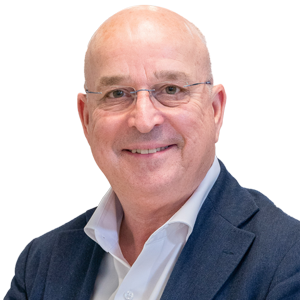
Arthur Valkieser is the CEO, CTO, and co-founder of Hydraloop, a visionary serial entrepreneur, and the inventor of Hydraloop’s patented technology. He serves as Vice President and Board Member at WaterEurope in Brussels, Vice Chairman of the WaterAlliance Expert Group Circular Water in the Netherlands, and Expert Member of the European Union’s CEN/TC 165/WG-50, which establishes standards for on-site non-potable water systems.
Arthur is driving innovation and change through the ‘Blueprint for a Circular Water Smart Society’, an initiative by the Global Expert Group Circular Water. This groundbreaking blueprint, offering tangible solutions for implementing circular water systems, was successfully presented at the UN 2023 Water Week in New York, COP28 in Dubai, and COP16 in Riyadh, setting the stage for transformative global water solutions.
In his earlier career, Arthur was the founder and CEO of one of Europe’s largest independent broadcast facility companies, achieving a successful exit. His entrepreneurial excellence earned him the title ‘Broadcast Personality of the Year 2001’ in the Netherlands.
Arthur combines innovation, expertise, and vision to advance circular water solutions globally and create a truly circular water smart society.

Scientific collaborator at the Institute of civil engineering at the RWTH Aachen University for more than 30 years. Member of different standardisation groups. Today convenor of CEN/TC 165 WG 50 – Water Reuse.
Professional projects in Indonesia, Morocco, Algeria, Austria mainly as lecturer and consultant on behalf of BMBF and GTZ.

Fireside Chat
Sustainable Urban Planning and Smart Urban Water Management for Resilient Cities
- The challenges of urban water stress and the impacts of climate change on urban water management
- The role of interdisciplinary approaches between design, policy, technology, and community in managing water sustainably
- Future trends in water-smart built environment, including smart city and AI-driven solutions that are shaping the future
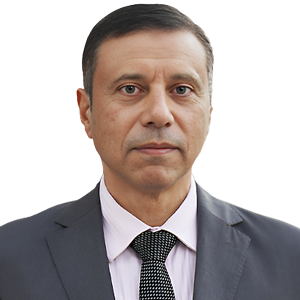
Dr. Hazem Gouda is a Chartered Water and Environmental Manager, Chartered Engineer, and Chartered Environmentalist (CIWEM) in the UK, with over 33 years of international experience in the water industry and academia. He holds a PhD and MSc from the UK, and a postgraduate diploma from IHE in the Netherlands.
Dr. Gouda has worked extensively across the sector in engineering consultancy, water companies, research centres and universities in the UK. His expertise in hydraulic modelling for urban development has helped his career in flood risk management, integration of green infrastructure for flood resilience and applying innovative, AI-driven solutions for water management. He has led teams on major projects such as Masdar City (Abu Dhabi), Crossrail (London), and Southern Water. His expertise spans sustainable infrastructure design, flood risk management, sustainable drainage systems (SuDS), innovative water management solutions, project management, and asset management.

Dima is a city strategist and a creative thought leader, building bridges through urban planning, design, and sustainability. She has experience in multi-scalar, interdisciplinary and complex projects. She brings a wealth of knowledge from professional practice in the public & private sectors as well as academia on the science of cities, sustainability, circular development & sustainable business models. Dima has worked on the planning & implementation of spatial framework plans & 2030 visions at a city level as well as large mixed use Master Plans with multi-modal transport hubs, where she created tangible sustainability strategies. Dima served as a judge for Gulf Sustainability Awards, and an expert practitioner for the United Nations Sustainable Development Solutions Network’s Youth program. She participated in several conferences and panels on sustainable development both locally & internationally. She is currently Director of Biospheric City Lab, a boutique consultancy for sustainable development, based in Dubai Design District, and an adjunct lecturer in Urban Planning & Development at the Sorbonne University in Abu Dhabi.
Impuls
Water-Energy-Digital: Enhancing sustainability in urban areas
- Energy-water nexus as key driver of sustainability
- The role of digital solutions in urban infrastructure & resource management
- Practical examples of smart water management in cities, industry and agriculture

Ms Bognar is with Schneider Electric since 12 years and is heading the Water & Environment Segment in Europe.
Before she was leading New Energy Businesses in DACH, including teams for Smart Grids, Green Buildings, E-Mobility, and Digital Solutions.
She holds a PhD in Energy Engineering with the focus on Renewables for Desalination.
Panel Diskussion
Closing the gap – coupling the water-agri-food system by circulating plant nutrients and water
- From Waste to Resource – Transforming wastewater management by shifting the focus from pollutant removal to nutrient recovery
- Closing the Loop – Harnessing a circular economy approach to recover essential nutrients (N, P) from urine, feces, and wastewater for sustainable fertilizer production
- Protecting Ecosystems – Reducing nutrient losses in agriculture to prevent environmental damage and safeguard water and land ecosystems

Anita Beblek is a lawyer and managing partner of agrathaer GmbH, which she co-founded in 2011. Prior to that, she was a managing director at the Saint-Gobain Group in Germany and the United Kingdom. She is a certified Design Thinker from the Hasso Plattner Institute and holds an executive degree in „Leading Digital Transformation“ from Stanford University, USA. Her expertise lies in innovation management in the agri-food sector, with a particular focus on how innovative ideas can be widely implemented in practice.
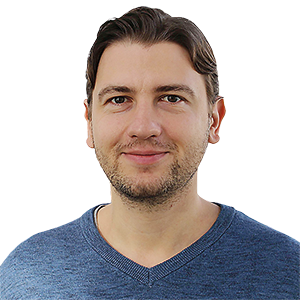
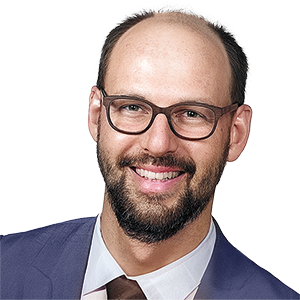
Andreas Obersteg (Dipl.-Geogr.) is a research assistant at the Institute of Urban Planning and Regional Development at HafenCity University Hamburg. He studied economic and social geography with a minor in spatial planning, regional development and business administration at the Technical University of Munich and the University of Tours (France). His research includes several European projects on urban-regional development and governance, urban-rural partnerships and circular economy in urban regions.
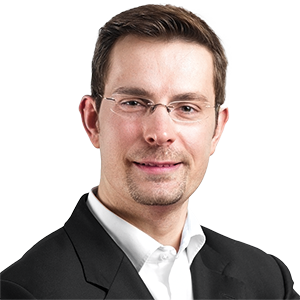
Tobias Stieber has been working in the financial industry for 30 years. He has worked for both international banks and leading consulting firms. Since 2012, he has held various positions in Triodos Bank’s corporate lending business. As a relationship manager, he currently supports complex financing enquiries for sustainable businesses. He also works as a lecturer for the Frankfurt School of Finance.
Wrap-Up des Konferenztages
Ende Tag 2
Parallele Breakout Sessions
March 18, 2025
In diesem Teil der Konferenz bieten wir eine nähere Perspektive in verschiedenen Stages. Hier haben Referenten und Teilnehmer die Möglichkeit, in konkrete Initiativen und Kooperationen im Wassersektor einzutauchen. Ihre Fragen und Erfahrungen sind herzlich willkommen, denn wir möchten vertiefende, praxisorientierte Diskussionen anregen.
Stage one
Innovative WASH-Projekte weltweit setzen auf sektorübergreifende Partnerschaften und gemeinwohlorientierte Ansätze, um Selbstversorgung und nachhaltige Lösungen zu fördern. Die enge Zusammenarbeit mit lokalen Gemeinschaften, der Industrie und den zuständigen Behörden sowie der Abbau von Marktzutrittsschranken sind entscheidend, um den Zugang zu erschwinglichen Sanitärlösungen in einkommensschwachen Regionen zu verbessern.
Der Kapazitäten Aufbau ist dabei ein wesentlicher Faktor, um WASH-Initiativen voranzutreiben. Er befähigt die Beteiligten, Wasser zu schätzen und effizient zu nutzen. Durch den Einsatz von Technologie, innovativem Produktdesign und gezielten Bildungsmaßnahmen werden Veränderungen in Haushalten und der Industrie angestoßen. Zugleich stellt die Förderung von Fachkräften sicher, dass nachhaltige Wasser- und Sanitärlösungen langfristig erfolgreich implementiert und betrieben werden können.
Stage two
Resource-efficient water use in buildings
Die neuesten Innovationen im Bereich wassersparender Technologien für Wohn- und Geschäftsgebäude spielen eine entscheidende Rolle bei der Verwirklichung größerer ökologischer Nachhaltigkeitsziele. Gebäude, die das Konzept von Net-zero-Wasser verfolgen und mit kreislauforientierten sowie selbstversorgenden Wassersystemen ausgestattet sind, bieten enormes Potenzial. Ihre Umsetzung erfordert jedoch eine sorgfältige Abwägung von Kosten und Nutzen, sowohl für private als auch für gewerbliche Anwendungen. Zudem eröffnet die Wiederverwendung von Grauwasser vielversprechende Ansätze zur Reduzierung des Wasserverbrauchs, stellt aber gleichzeitig technische und rechtliche Herausforderungen dar.
Kontakt




